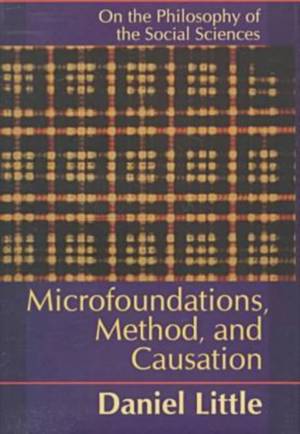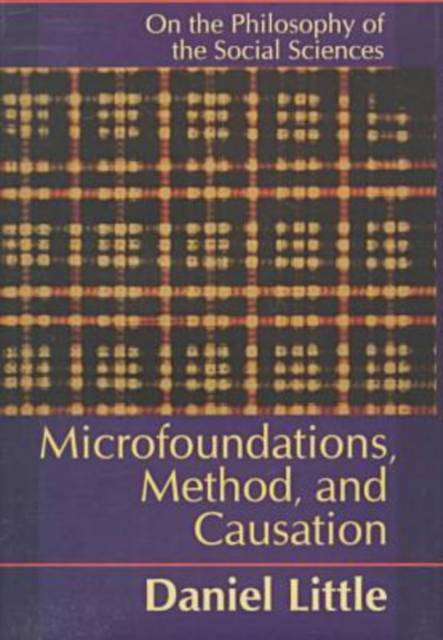
- Afhalen na 1 uur in een winkel met voorraad
- Gratis thuislevering in België
- Ruim aanbod met 7 miljoen producten
- Afhalen na 1 uur in een winkel met voorraad
- Gratis thuislevering in België
- Ruim aanbod met 7 miljoen producten
Microfoundations, Method, and Causation
On the Philosophy of the Social Science
Omschrijving
The convergence of inexactness and intelligibility in social phenomena makes social and historical inquiry fascinating. The social world is not chaotic and social processes are not unrelated strings of events. We can explain social patterns in ways that illuminate social outcomes. At the same time, the social world does not constitute a closed, determined system of variables and outcomes, in the same way that quantum chemistry systemizes the properties of all physical structures. Instead, the social sciences are a tangle of cross-cutting, overlapping sets of theories, hypotheses, causal models, idealized facts, interpretive principles, and bodies of empirical findings that may illuminate but do not reduce.
In Microfoundations, Method, and Causation, Daniel Little combines a purely philosophical perspective on social science, with the theoretical and empirical practice of working scientists. Part 1 focuses on the theory of popular politics constructed within the context of analytical Marxism. In part 2, Little asks if rational choice theory provides an adequate basis for explaining patterns of social, political, and economic behavior in traditional China. The essays in part 3 reveal the philosophy of social science as understood by philosophers. Here, Little probes issues of objectivity, empiricism, and generalizations, and makes the case that social generalizations are not akin to laws of nature.
Little's approach to social science research effectively points out the limits inherent in social theories, as well as questions and answers that may be posed to the social world. In a clear, compelling, and honest fashion, he urges both the social scientist and the philosopher who studies the social sciences, to make the most of empirical methods of research to develop hypotheses about the social world. As such, this is a must read for sociologists, social theorists, and philosophers.
Specificaties
Betrokkenen
- Uitgeverij:
Inhoud
- Aantal bladzijden:
- 272
- Taal:
- Engels
- Reeks:
Eigenschappen
- Productcode (EAN):
- 9781560003694
- Verschijningsdatum:
- 31/03/1998
- Uitvoering:
- Hardcover
- Formaat:
- Genaaid
- Afmetingen:
- 164 mm x 234 mm
- Gewicht:
- 635 g

Alleen bij Standaard Boekhandel
Beoordelingen
We publiceren alleen reviews die voldoen aan de voorwaarden voor reviews. Bekijk onze voorwaarden voor reviews.











